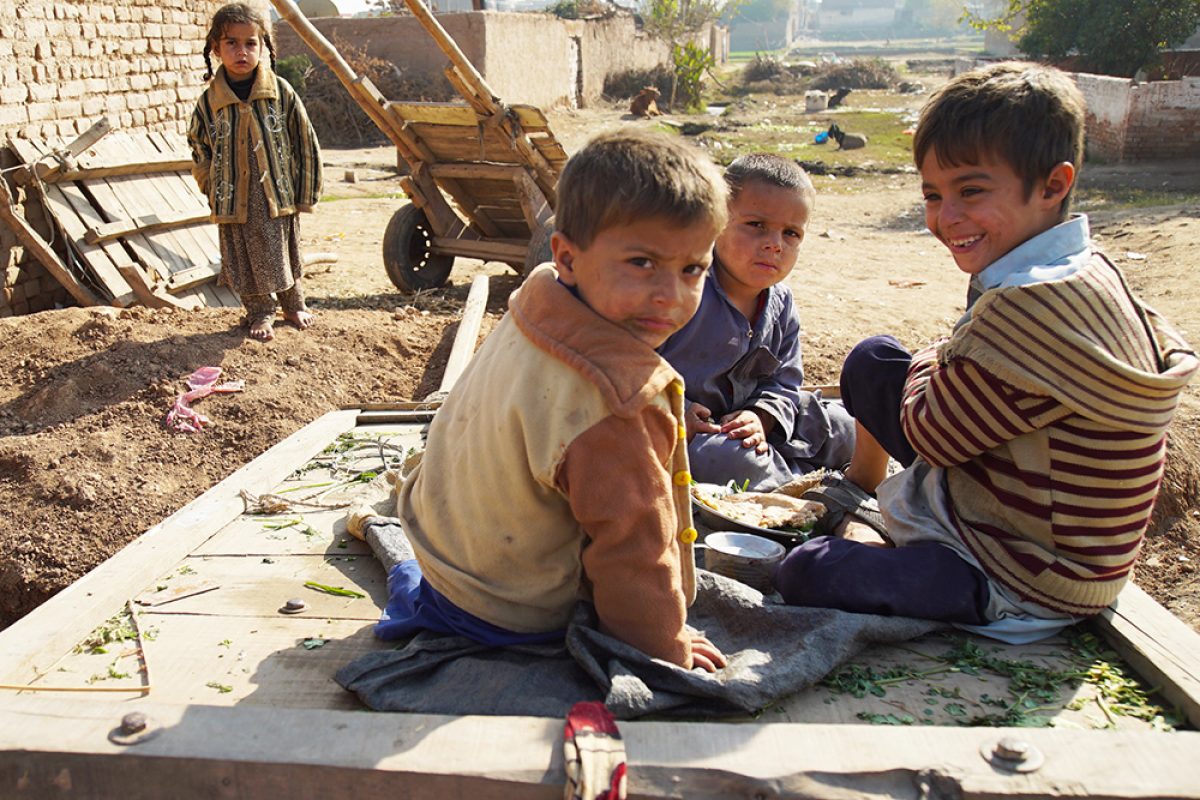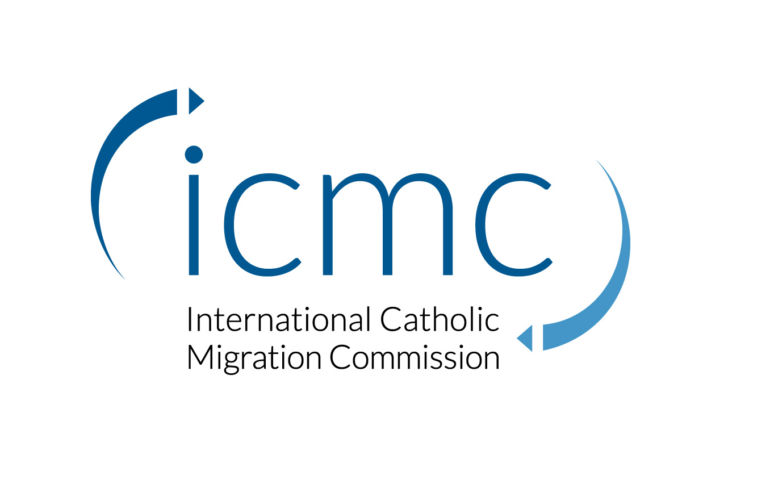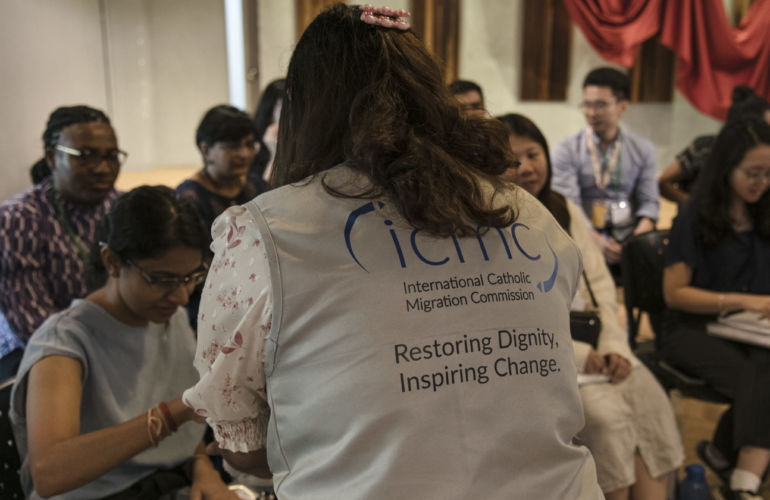Responding to the Needs of People in Situations of Long-Term Forced Displacement

On 17 October, leading scholars, policy experts, and practitioners gathered to discuss forced migration, protection, and border control at the Center for Migration Studies’ annual academic and policy symposium in New York. ICMC Secretary General Msgr. Robert J. Vitillo was invited to discuss responses to the needs of people in situations of long-term displacement.
The Center for Migration Studies’ sixth annual symposium addressed topics ranging from the adverse impact of enforcement efforts on the protection of migrants to the access to asylum on the US-Mexico border. The annual conference celebrates the work of leading scholars and thinkers on international migration.
ICMC Secretary General Msgr. Robert J. Vitillo took part in a panel on the challenges faced when responding to the needs of refugees, displaced persons, and their host communities in situations of protracted displacement. UNHCR defines protracted displacement as any long-term refugee situation in which at least 25,000 people of a given nationality have been in exile for at least five years.
According to UNHCR’s Global Trends on Forced Displacement, 78% of refugees worldwide were in protracted situations at the end of 2018, an increase of 12% from the previous year. Syrians living in Egypt, Iraq, Jordan, Lebanon, and Turkey and Afghans in Iran and Pakistan are among the largest groups of refugees confronting such difficulties.
Although people in protracted situations have moved beyond the phase of emergency humanitarian assistance, they cannot count on durable solutions in their foreseeable future. As the savings of the refugees are depleted and international funds become less and less forthcoming, vulnerability increases the longer these persons live in uncertain situations. Msgr. Vitillo shared that 85% of Syrians in Jordan live below the poverty line and that a survey conducted by ICMC among Syrian refugees in Jordan revealed that 76% of respondents reported facing obstacles to healthcare access. Moreover, mental health issues grow exponentially with time in situations of uncertainty.
Local integration of persons in situations of long-term displacement is rarely supported. Msgr. Vitillo gave the example of Afghan refugees in Pakistan, who fled their country as far back as four decades ago. Many refugees currently living in Pakistan are the children or grandchildren of those who fled, and know no other country. However, they cannot become nationals, often remain in refugee villages, and live in fear of forced return. The adverse psychosocial effects of uncertainty remain even when refugees are granted temporary asylum or protection.
Msgr. Vitillo noted that responses to protracted displacement require respect for the humanity and aspirations of each refugee. “In the eyes of the international community, these refugees are ‘morphed’ into issues rather than people,” he said. “Pope Francis often reminds us that refugees and migrants want to have more – peace, security, stability, a way out of abject poverty – but most of all, they want to BE more.”
ICMC is fulfilling its mission to protect and serve uprooted people by promoting and facilitating the three durable solutions for refugees – resettlement, capacity-building for integration and private resettlement, and assistance with voluntary returns when possible – said Msgr. Vitillo.
During the symposium’s final presentation, Msgr. Vitillo urged participants to address States’ decreasing commitment to refugee resettlement and to prioritize the needs of children, who represent 50% of forcibly displaced people and who are particularly vulnerable to exploitation and trafficking. He also asked the audience to listen to refugees’ assessment of their highest priorities. He noted the priorities stated by ICMC’s beneficiaries in Jordan: protection from violence, abuse, neglect and exploitation, mental health and psychosocial care, and prevention of social isolation and economic exclusion.
Msgr. Vitillo further encouraged the audience to remind themselves of refugees’ humanity. “I often think of the Somali 13-year-old child translating for her mother in Pakistan as they both desperately sought to be resettled in a third country; of the Syrian mother in Jordan who only wants her children to be educated; […] of Christian refugees who have told me of the discrimination they face both in home countries and in transit countries,” he said.
The Center for Migration Studies of New York is a think tank and an educational institute devoted to the study of international migration, to the promotion of understanding between immigrants and receiving communities, and to public policies that safeguard the dignity and rights of migrants, refugees, and newcomers. It was established by the Congregation of the Missionaries of St. Charles, Scalabrinians, a community of Catholic priests, religious women, and laypeople dedicated to serving migrants and refugees throughout the world.


